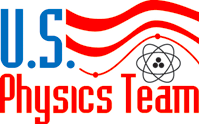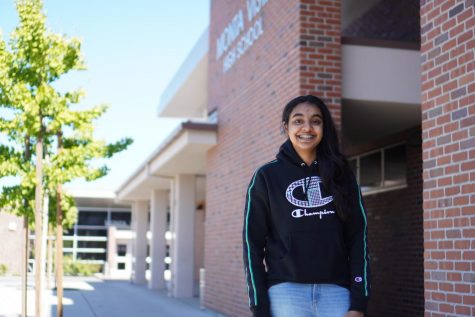Students prepare for the second round of the Physics Olympiad
The experiences of those who passed the F=ma Exam

March 13, 2019
Nothing. That was what junior Jacob Nie felt after he qualified for the USA Physics Olympiad (USAPhO) for the second time in a row. After scoring a 22 out of 25 on the preliminary F=ma exam, Nie wasn’t particularly emotional about the results.
“I didn’t feel anything,” Nie said. “Either you make it or you don’t.”
Approximately 75 students at MVHS took the second version of the F=ma exam on Jan. 29. The exam consists of 25 multiple choice questions with a 75 minute time limit. This year, if participants achieved a score of 17 or higher, they are eligible to participate in the USAPhO exam in April – a test with a format similar to free response questions on AP exams. From there, the top 20 participants are given the opportunity to compete once again for a spot on the U.S. physics team.
Last year, Nie received a silver medal after earning a spot in the top 80. He attributes his success to his preparation – using past exams and textbooks to study for three to four hours every day for the last two years. Junior Brandon Guo used a similar strategy but felt unprepared after studying for almost a month in advance.
“I didn’t know what to expect because it seems like these problems are really unique,” Guo said. “They’re meant to challenge you, so honestly I didn’t know if I knew everything I needed to.”
After scoring a 20 out of 25 on the exam, Guo remembers the relief he felt in knowing that his work paid off. In order to prepare for the next round, Guo plans to modify his preparation style to better fit the format of the USAPhO exam.
“I’m going to practice writing proofs and responses a lot more to make sure that I get the maximum points for the problems I solve,” Guo said. “This is my first time taking the exam, so I honestly just want to try to do the best that I can.”
Junior Sophie Ye also felt relieved and pleasantly surprised after scoring an 18 on the exam – one point above the cutoff. Similar to both Guo and Nie, she took a few past exams for practice. During the exam, Ye remembers encountering difficult problems.
“[The exam] is not designed so that someone with minimal preparation can walk in and actually do all the problems,” Ye said. “Overall, I didn’t find it particularly difficult. [There were] a couple questions I wasn’t sure how to do.”
When preparing for the next round of tests, Nie plans to continue his current preparation strategy of reading textbooks and doing past problems. He hopes to make it to the top 20, and eventually attend the USAPhO training camp at the University of Maryland in June.
“[Physics is] like a sport,” Nie said. “You need to practice.”

















